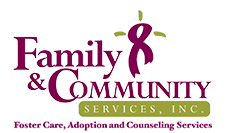Birth Family Search: 10 Questions to Ask Yourself
By Hollee McGinnis aka Lee Hwa Young
As adult adoptees our adoptions did not end the day we were placed in the waiting arms of our adoptive parents. It was only the beginning of our lifelong journey of self-discovery and the very beginning of our adoption journey. Our adoption journeys have not always been clear, nor have they been simple. Often we fumbled unknowingly in the dark, but today adoptees have an unprecedented opportunity to share the wisdom gained from our individual experiences.
The decision to search for one’s birth parents is one of the many milestones in our adoptions. Although we might try to create a road map based on another person’s search, the reality is when you were adopted, the age you were adopted or relinquished, what orphanage you were first placed in, what agency you were processed through, and the circumstances that led up to your relinquishment all affect your search and, ultimately, what the outcome will be. Every search is unique.
I thought it would be useful to offer ten “moment of truth” questions I have gathered from listening to other people who have searched and united with their birth families, with illustrations from my own experience of meeting my birth family. The first five questions relate to searches and the last five questions relate to reunions. These questions are useful not only for those who want to search but for any adoptee who is engaged in understanding their own adoption.
